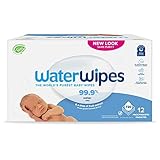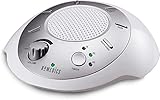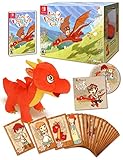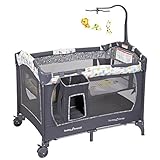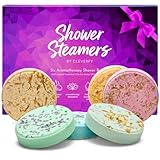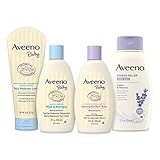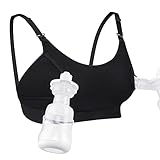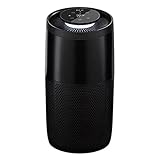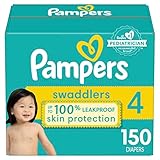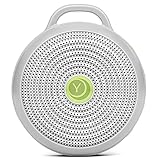Top Baby Care Hacks For First Time Mums
Table of Contents
Newborn baby care in the first couple of months can be overwhelming and stressful for new parents.
You’ll get all sorts of contradicting advice from everybody regarding newborn baby care.
It can be confusing determining what advice to follow.
However, it is also one of life’s most rewarding and amazing experiences.

All you should know about pre-pregnancy planning
Considering being a parent?
Before you get pregnant, there are steps you can try taking to prepare your body for a pregnancy that’s healthy.
From your lifestyle to nutrition and medical profile, you can get to a healthy start with the help of pre pregnancy planning.
You can even practice with a real care baby simulator to get a feel before the real baby comes.
In case you have a condition like heart illness or diabetes, your physician will talk to you about how these might impact your pregnancy.
You will also get additional care you may need.
Let your physician also know, if any health issues run in your family.
When you’re in good health before getting pregnant, the baby has the best possibility of growing strong and healthy.
Here are easy steps that can assist you to create a healthy environment for you and the baby, even before you get pregnant.
- Preconception visit:
To ensure you are in the perfect health for pregnancy you should schedule a preconception visit with your physician.
Along with talking about supplements, workout, and diet, your physician can deal with any medications, chronic illnesses, or health issues that might affect your pregnancy.
Proper immunization can prevent some pregnancy-threatening infections and conception problems.
Before you decide to get pregnant, you should ask your fertility specialist or OB/GYN if you need immunization against Chickenpox and Rubella.
If you aren’t immune to such infections, you might want to get vaccination prior to pre pregnancy planning.
Experts recommend that before you try to conceive you should wait for at least a month after vaccination.
Furthermore, remember to get a flu vaccine when you’re expectant.
Respiratory issues brought about by Influenza are much more severe in expectant mothers compared to the average healthy adult.
- Do away with tobacco and alcohol:
Drinking and smoking while pregnant can lead to many congenital disabilities.
Provide your baby with the best chance for great health by getting rid of drinking and smoking before conception.
Seek the advice of your physician if you require support in stopping.
- Healthy weight:
Everybody knows that expectant mothers put on weight during the 9 months.
- Renpho smart app works in connection with fitness apps. Easy setup app works with Samsung Health, Fitbit App, Google Fit, and Apple Health. Renpho already has millions of happy global users.
- 13 essential body measurements. The scale shows body weight only. Other body composition data including weight, BMI, body fat percentage stores in the app. You can weigh yourself anytime without your phone, and all the data will be uploaded to your App whenever you open the App and measuring again.
- User-friendly app. Download Renpho app at App Store or Google Play, it also offers Apple Watch App (Except for Apple Watch Series 1). Renpho App works with Bluetooth 4.0 And above.
However, a lot of hopeful parents do not know that it is essential for the mother to attain a healthy weight before getting pregnant.
Complications can take place during pregnancy if the mother is under or overweight.
Eating a well-balanced diet and maintaining a healthy weight before getting pregnant will give the baby the best chance at healthy growth.
- Folic acid:
- 240 Capsules In Each Bottle
- 1,000 MCG Per Capsule
- High Quality Folic Acid
Expectant mothers require extra folic acid in their diet programs to help in reducing the baby’s risk of being born with spine and brain defects.
It is particularly important in the first weeks of pregnancy.
How to plan for a baby
One of the first essential decisions with regards to how to plan for a baby is the choice of your doctor or other healthcare providers.
Go for a physician with whom you’re comfortable, whose treatment of pregnancy and outlook is closely in line with your own beliefs.
Referrals from friends, family, and other reliable sources are great places to begin.
Whether you intend to have your newborn in the hospital, a birthing center or at home, there are things that you need to consider before the arrival of your baby.
- Pediatrician
In the first couple of weeks after the arrival, your baby will visit the doctor many times.
Go for a pediatrician who is nearer to the area you reside. Having a doctor nearby makes it simpler for you to travel with the baby in the beginning.
Your gynecologist can recommend somebody as well.
Ask your friends and learn about some pediatricians you can contact.
- Create a birth plan
If you have not already, it is smart to put together a few notes that inform your midwife what type of birth you would like.
Your birth plan should be flexible, in the event your situation or preferences change on the day.
However, it can still be a helpful guide for the team looking after you, your birth partner, and for you.
- Organize extra help
The first couple of weeks with a newborn can be too much to handle.
If you are fortunate enough to have relatives or friends who are ready to lend a hand, it is worth having a talk with regards to specifics before the arrival of your baby.
If you are thinking of using paid help, like a babysitter for your older child, or a cleaner, you can plan this upfront.
- Cook plenty of food
When the baby arrives, you’ll have your hands full.
It can be hard to fit in cooking and food preparation for yourself, so it’s good to cook and freeze plenty of food now.
It can be a life-saver in the first few days or so after the baby’s arrival.
- Pack your hospital bag
Your labor might begin anytime, so you should get all your necessary stuff together by the time you are approximately 36 weeks.
You should pack all the stuff you will require for labor.
Pack also those you will need after the baby’s arrival, like a change of clothes, nappies and your birth plan.
Then you should place the bag by the front door.
- Purchasing newborn baby care products
The birth of your baby means shopping for many newborn baby care products.
You should make a newborn baby shopping list of all the stuff your newborn will require in the first couple of weeks.
Some of the important things, your baby will require include accessories, crib, nappies, diapers, feeding bottles, toiletries and clothes.
Find an outlet near your home, which you can easily visit if you require newborn baby care products urgently.
- Restock on nappies
You might be astonished at the number of nappies your baby will get through, so restocking now up is important.
If you intend to use disposable nappies, you will require around ten to twelve each day.
- Up to 12 hours of overnight dryness
- Locks away wetness into 3 Extra Absorb Channels
- 3 layers of absorbency pull liquid away and keep your baby dry
If you are choosing re-usable, the quantity you require depends on the kind of nappy you select.
Some traders offer trial packs, to help you see what is best suited for your little one.
- Get contact numbers
Ensure your phone has all the numbers you might require.
By doing this, there will be no holdup if you have to get in touch with your local hospital, doctor or midwife.
It is also smart to have some options for who to contact if you require transport, or somebody to look after your other kids.
- Wash your newborn’s bedding and clothes
The skin of your newborn baby will be very sensitive.
So you should use a non-biological detergent to wash the bedding and clothes, before using them.
It will be gentler on the infant’s skin and decrease the possibility of irritation.
- Pick attire for the newborn
Selecting what attire to take your little one home in is one of the fun choices to make.
Ensure it is clean and packed in the hospital bag, all set to go.
- Clean the house
You will not have a lot of time to perform household chores when the baby arrives.
If you are fortunate, your nesting instinct might have began now.
Make the most of it. Get the house vacuumed, dusted and cleaned.
If you are very exhausted, make sure to just do the basics, like arranging the baby supplies.
Every little will help to make life with your baby a little bit simpler.
- Charge your phone
Ensure that the phone is 100 % charged, and at all times keep the charger with you when you are in labor.
By doing this, you will be ready to update your friends and loved ones with the joyful news and capture that special first picture.
List of things you need for a new baby
It can be difficult coming up with newborn baby shopping list, particularly since there is such a vast selection of newborn baby care products available.

How many burping clothes, sleepers, undershirts and bottles does your baby require?
What do you need to carry in your diaper bag?
Which creams and lotions do you need to purchase?
Our baby shopping list for first time moms can help you determine what you will require for the first couple of months.
1.Linen:
- Two to three waterproof changing mats
- Five to six swaddle wraps
- Two to three fitted cot sheets
- Three to four soft baby washcloths
- One to two waterproof mattress underlays
- Two to three blankets (soft quilted, fleece or waffle weave)
- One waterproof mattress pad
- Flannels
2. Play:
- Squeezing toy
- Playmat
- Small soft toy
- Pack and play
- Hanging cot toy
- Rattle
- Cot mobile
- Nursery rhymes CD
- Baby gym
- Development mat.
- 4 ways to play as your baby grows
- Learning content changes with baby's age & stage with 3 Smart Stages learning levels, plus a bonus piano play mode with real music notes!
- Large keyboard with 5 light-up keys, removes for take-along play!
3. Changing Items:
Since you will frequently be changing your little one in multiple areas of your home, it will help to have a set of changing supplies in the infant’s room along with one in an easily transportable container like a basket.
- Cotton balls
- Changing mat
- Nappy rash cream
- Baby washcloths or baby wipes
- Changing table
- Nappies and diapers.
- Includes water-resistant changing pad with safety strap; features two fixed shelves for open storage
- Safety rails enclose all four sides around the top of the table; tested for lead and other toxic elements to meet or exceed government and ASTM safety standards. Wood construction
- Made of solid wood and wood composites; meets all safety and anti-tipping standards.: 35.25W x 21.50D x 36.7 H inches.Shipping dimensions (in inches): 40.25 (width) by 5.50 (height) by 25.25 (depth); Shipping Weight (in pounds): 33.29
4. Bathing Supplies:
Until the newborn’s umbilical cord drops off, which is usually five to seven days after birth, the favored bathing method will be a sponge bath.
- Anti-bacterial soap
- Soft towel
- Baby washcloths
- Shampoo
- Bath thermometer
- Baby soap
- Baby oil
- Towels
- Soft sponges
- Baby bathtub
- Soft comb and brush
- Cotton balls for cleaning eyes
5. Baby’s feeding supplies:
As with the changing supplies, you might find that you’re feeding little one in multiple areas of your house.
An additional set of supplies stored in a handy container can make feeding easier.
- Electric kettle
- Hot thermos
- Square cloth diapers or burp cloths
- Thermal bottle carrier
- Cracked nipple cream
- Pillow (to save your arms and support little one)
- Nursing pads
If utilizing a breast pump:
- Breast milk bags
- Breast pump
- Plastic bottles (for storage of pumped milk)
If bottle feeding:
- A formula of your liking
- Electric sterilizer
- 6 x 120ml bottles with nipple units
- Embrace your parental instincts and Raise your very own Dragon! through wise decisions, proper nutrition, and empathetic nurturing show the world the true potential of your Dragon companion!
- Learn new recipes and master the art of cooking while running your very own cafe. Explore the world, discover new ingredients, and expand your menu (and your Restaurant.)
- Grow your own - the tastiest dishes use the freshest ingredients, and the best way to insure that is to grow your own produce
- Embrace your parental instincts and Raise your very own Dragon! through wise decisions, proper nutrition, and empathetic nurturing show the world the true potential of your Dragon companion!
- Learn new recipes and master the art of cooking while running your very own cafe. Explore the world, discover new ingredients, and expand your menu (and your Restaurant.)
- Grow your own - the tastiest dishes use the freshest ingredients, and the best way to insure that is to grow your own produce
6. Sleeping:
- Cot bumper – prevents little one getting legs wedged between rails
- Cot mattress and protector
- Crib
- Baby monitor with a room thermometer
- Moses basket
- Cot
- Cot bed linen – sleeping bags, blankets, sheets
- Blackout blinds
- Moses basket bed linen
- Waterproof mattress
- Swaddling blanket
7. Travel Essentials:
- Baby on board sign
- Nappy Bag
- Car Seat
- Bag divider
- Convertible car seat or pram with bassinet
- Baby carrier or sling
8. First Aid, safety and health Items to have on standby:
- Purified water
- Camera with WiFi
- Baby monitor
- Humidifier (for when the little one gets a cold)
- Medicine dropper
- Baby sunscreen/sunblock
- Infant baby nail clippers
- Thermometer
Other most essential things a newborn baby needs include:
1.Clothing
Getting baby clothes is probably the most fascinating item on any newborn baby needs checklist.
Those tiny cute clothes are alluring for sure.
However, before you purchase the entire store next time you are looking for newborn baby clothes, here are a few basics you will require:
- A wide-brimmed cap or hat to shield from the UV-rays
- Socks
- One-piece pajamas
- Rompers or onesies with head openings that are wide (long-sleeved and short-sleeved)
2. Baby gear
Whether you are preparing for mealtime or are both out and about, you will need some important newborn gear ready.
Some of the newborn baby needs checklist essentials to consider include:
- High chair
- Bouncer or baby swing
- Baby carrier or stroller
- Convertible or infant car seat
3. Nursery
An infant’s room requires beautiful decor for sure; however, you will require furniture that can make newborn baby care safer and easier as well.
- Removable full size bassinet
- Handy diaper stacker and mobile
- One hand locking mechanism
The following are the newborn essentials for any baby room:
- Baby monitor
- Toy basket
- Nightlight
- Dresser
- Bassinet, cradle or crib
- A mattress that’s firm and flat and fits neatly in a baby crib
- Arm or rocking chair
Helpful items:
- Breastfeeding support pillow
- Breastfeeding tops and bras
- Some adorable clothes for your time out together
- Rack to store everything on for changing
- Newborn sleeping bag with no hood and fitted with armholes and neck
Tips for newborn baby care
An infant can be quite stressful, so the first couple of days with the baby might appear like one never-ending feeding and changing round.
Some of the basic care your little one will require during these early days include:
1.Handling the baby
There are some things to take into account when playing with your newborn.
- You should not shake the baby since the internal organs are delicate and can be harmed.
- Never throw the newborn up into the air, since this can be life-threatening.
- At all times wash or sanitize your hands before you handle the newborn. This is because their defense mechanisms aren’t fully developed. This makes them susceptible to infections.
- Make sure that your child is secured properly in a baby carrier, car seat, or stroller if you are going outdoors.
- Make your child lies on the stomach regularly for a short while. It strengthens the baby’s back and neck muscles. It will improve the baby’s vision since the baby will need to look sideways and up to see.
2. Changing a diaper/nappy
Changing diapers often is an essential aspect when it comes to newborn baby care after birth.
If your newborn is getting adequate formula or breast milk, they will wet around 6 – 8 diapers every day, together with frequent bowel movements.
You should change the diaper often, the moment it feels full.
You will require fresh diapers, gentle diaper wipes, changing pad, baby powder or diaper rash cream to change the soiled diaper.
Allow your newborn baby to remain without a diaper for a couple of hours daily.
Whenever you undo the soiled nappy, you should hold it in place for a second.
The reason being, the baby will probably pee when it feels the cold air on the skin.
Wipe any soiling on the baby’s skin using a clean area of the soiled nappy.
Then, clean the nappy area with cotton wool or sensitive infant wipes and warm water.
Avoid germs getting into the genitals by wiping girls from front to the back.
Clean the boys around the genitals.
As soon as the area is clean, the little one is all set for a clean nappy.
3. Burping
As soon as the little one satisfied, burping should be done.
Infants ingest air while breastfeeding, causing their stomach to have gas and colic.
This excess air is expelled by burping.
This helps in digestion and preventing stomach colic and vomiting.
You should use one hand to hold the newborn against your chest gently.
The baby’s chin has to rest on your shoulder.
Then use your other hand to stroke or slap the baby’s back lightly until the baby burps.
4. Caring for the umbilical cord stump
An essential aspect of newborn baby care in the first month is taking care of the umbilical cord stump.
You should not bathe the little one for the initial 2 to 3 weeks.
Use a sponge instead with lukewarm water.
Remember to keep the naval area clean and dry. Fold down the newborn’s diaper to ensure the stump dries properly.
You should sanitize your hands before you handle the naval area.
Use a damp cloth to clean and then use a clean, absorbent cloth to dry the area. Check for signs of infection in the stump area.
If the naval area has any bleeding, inflammation, redness, and pus or smelly discharge, see a pediatrician immediately.
5. Washing your newborn
It’s a delicate task to bath a baby.

You need to start bathing the newborn twice or thrice weekly after the cord stump dries and drops off.
Ensure you get all the bathing and changing newborn baby care products ready prior to taking the newborn for a bath.
Babies can sleep more soundly if they bath just before bedtime.
You will require a baby bathtub, fresh baby clothes, baby cream or lotion, a washcloth, lukewarm water, new diaper, soft towel, and body wash or mild baby soap.
It’s important that you get a family member or your partner to assist.
This is to ensure that the newborn’s head and neck are held above the water by one person while the other bathes the little one.
Use a washcloth to clean the newborn’s face, hair, genitals, neck, scalp, and any dried mucous that has gathered around the nose.
Use lukewarm water to rinse your newborn’s body.
When done, use a soft towel to dry the newborn’s body.
Apply baby lotion or cream and wear a fresh diaper and newborn clothes.
If your baby doesn’t like being bare and immersed in water, do not bath the baby daily.
A bottom, neck, faces and hands wash is all the baby requires in between having a bath.
Regardless of whether you are bathing, tailing or topping your little one, make sure you select a time when the baby is conscious and happy.
Ensure that the room where you will remove your baby’s clothes is warm and ensure everything you’ll require is ready before starting.
You should not use any products on the baby’s face or try to clean inside the ears or nose.
Wash the baby’s hands and remove any fluff caught between the fingers.
Use cooled boiled water to wash your little one’s face, utilizing separate cotton wool pieces for the creases in the neck, around the nose, for each eye and around the mouth.
If you won’t bath your newborn, dress the top half of your baby to keep them warm.
Then remove the nappy and clean the baby’s bottom.
Use a bath thermometer to test the water’s temperature; the water has to be between 36-37°Celcius.
You should hold the baby, still covered in a towel, over the bath water with the baby’s legs between your arm and side.
Support the baby’s body along your forearm with the baby’s head in your hand.
Scoop water from the bath using your free hand over her the head of the baby before you apply shampoo.
Use fresh water to rinse it off and pat the baby’s head dry it off, being careful of the soft spots.
As soon as you have washed the baby’s hair, take out the towel and lift the baby into the bath (making sure to check the temperature of water once more).
Then hold the baby so that the back and head is supported on your arm.
Wash the baby using your other hand.
It does not matter if the cord stump becomes wet provided that it’s dried with care later on.
Once you are done, lift the baby on to a towel on your knee and wrap the baby warmly before you softly pat the skin dry.
6. Holding your baby
You need to make sure that you are using one hand to support the neck and head while the baby.
It is because the neck muscles aren’t yet too firm to hold up the head by itself.
The spine is still growing and getting stronger as well.
It’s only after three months that the neck can support the head on its own.
So be cautious about supporting your newborn’s neck and head when it comes to newborn baby care.
7. Trimming nails
Baby nails grow quickly.
The newborn might scratch the body or face with their hand movements.
Thus, it’s essential to trim the newborn’s nails.
Use baby nail clippers since a baby’s nails are soft.
You should try and trim the nails gently when the child is sleeping.
Never trim the nails too deeply since they are quite tender and can be uncomfortable for the little one.
You should not trim the edges of the since this will result in ingrown nails.
8. Massaging
This is a good way to bond with your child.
It assists to sooth the newborn into sleep as well as in bettering digestion and blood flow as well.
Take some baby lotion or oil and spread on your hands.
After that, rhythmically and smoothly stroke the baby’s body.
You should maintain eye contact with the newborn baby and talk to the baby her when massaging their body.
The best time to massage the little one is before her before bathing.
9. Sleeping
Babies should sleep for around 16 hours each day in the first two months.
Some babies sleep more than others tending to sleep for approximately 20 hours a day.
Others will sleep much less, but these intervals of sleeplessness can occur at any time.
They often take naps, which are two to four hours long and wake up if they’re wet or hungry.
Since the newborn needs feeding every three hours, you may have to wake the baby for feeding.
You should not be concerned in the event the baby doesn’t stick to the right baby sleep pattern.
Babies are different, and each baby’s sleep cycle is different.
Your baby does not have any idea of day and night, so there’s no point in anticipating your baby to sleep at night and to remain awake at daytime.
You need to make sure you change your newborn’s head position while sleeping.
This helps prevent the flat spots forming on the head.
Ensure you put the child to sleep on the back on her to prevent suffocation.
Taking a nap together with the baby is important for a mother.
She can use the time to eat or bath peacefully while her little one is sleeping.
It is important that for the first 6 months you should sleep in the same room with your baby, both during the day and at night.
10. Feeding
It’s essential to feed the little one promptly.
A newborn baby needs feeding every two to three hours, meaning you should breastfeed the baby 8 to 12 times a day.
Feed your baby only breast milk for the first six months of life.
It has important antibodies and nutrients, which help in the growth and survival of the baby.
You should hold the breast near the lips of the baby until it latches on tightly and begins sucking.
If the newborn has latched on properly, the mother won’t feel any nipple pain.
The breast must feel less full as soon as the little one has finished.
It is a sign that the little one is getting adequate milk.
In the event breast milk isn’t a choice, use a doctor-recommended formula to feed the newborn.
New parents need to look for help from friends and family to enable them to rest and look after themselves as well.
11. Safety of the baby
Though unexpected infant death syndrome is uncommon, there are a few easy safety measures you can take to assist in reducing the dangers:
- Do not sleep with your newborn in an armchair or on the sofa.
- You should not share a bed with your little one if your newborn is premature, you have taken any type of drugs, are very exhausted, if you or your partner smokes or have drunk alcohol.
- Never allow your baby to become very hot. At all times, keep blankets tucked no higher than the baby’s shoulders. Don’t cover the baby’s head. Always keep the cot out of direct sunlight and away from radiators.
- Never smoke when pregnant, or let anybody to smoke in your house once the baby is born.
- You should not use pillows or duvet. Only use a firm new mattress.
- You should always place your little one on their back; feet just touching the foot of the cot, whenever you place the baby down to sleep.
12. Contents of the nappy
The first nappy contents of your newborn baby might come as a little of a surprise since the first stools will be blackish-green in color and sticky.
It’s due to your newborn digesting amniotic fluid.
The consistency and color of the stools will change as soon as feeding is established.
If the baby is bottle-fed, the poop will change to pale brown or yellowish-orange if breastfed.
Some newborns have soiled nappies at or around every feed while others, particularly breastfed ones, might not pass stools for several days.
Provided that the stools are soft, you do not have to bother about your little one experiencing constipation.
Poop that resembles rabbit pellets is an indication of bowel problems, and you need to ask your doctor for advice.
Getting disposable diapers is important since they are efficient at soaking up liquid.
But it is not easy to determine the amount of urine your child is producing initially.
As soon as you get accustomed to a normal nappy’s weight, it will be simpler to determine whether there’s any change to the volume of urine your little one is passing.
13. Crying
Your child might start crying the moment it is born, or the baby might wait until delivery and starts breathing normally.
The first cries tend to be a little soft cry, and later on, a full-bodied crying follows.
It is perfectly normal for your baby to cry.
It is one of the ways the little one communicates with you.
The crying is their way of informing you they are not comfortable.
Fatigue, missing the baby’s feeding signals can also cause crying.
You will within weeks understand how to differentiate crying and how best to soothe the baby.
Some newborns cry a little, and others naturally cry so much.
Your little one might cry more in the evening, which may be challenging since you are probably exhausted.
This can make find it difficult to deal with.
You can get in touch with your doctor or midwife if you suspect the baby is unwell, or if the crying is making you worry.
Information on newborn baby care first 6 months
Your newborn is just getting used to the strange surroundings during the first month.
And you’re getting accustomed to looking after the many needs of your baby.
At one-month-old, little ones still want to feed often, and their sleeping patterns are irregular.
Most are still quite sleepy, and besides brief wakeful times of being wet and feeding, they sleep for at least a few hours between their feeds.
Here are some helpful tips on newborn baby care first 6 months:
1.Communication and play
It’s important to give your baby supervised play time daily.
It will help them to the strength of their upper body and neck.
Babies might only put up with this for short durations; however, do not allow this to stop you from providing it.
Though it can be enticing to tiptoe around the house when your little one is sleeping, it may result in them becoming sensitive to surrounding noise.
Newborns who are born in families where there are already many young kids appear oblivious to the noise and figure out how to become accustomed since they need to.
2. Sleeping
Provide your baby with lots of chance to sleep and know their sleep signs.
The best thing about having a newborn in the house most likely has not worn off yet.
It is simple to over handle small infants which, though carried out with the best of motives, can lead them to get overtired.
Even at this initial phase, try to put your little one into their cot when they’re exhausted, instead of already sleeping.
The majority of small infants fall asleep shortly after feeding.
3. Baby’s wellness
Your newborn’s first immunization will be due in a month, so examine your choices on where you prefer to have this carried out.
Many councils provide immunization services at no cost and run clinics at certain times and days.
On the other hand, you can visit your doctor; however, you will probably be asked to pay a consultation fee.
A sick person should not come into contact with your baby.
Minimizing any likely exposure to infections would be wise.
Though it is impossible to insulate your little one completely, you’ll be doing the baby a favor by applying wise safety measures.
The ideal method of reducing contamination and managing infections is by washing your hands.
You should wash your hands and dry them properly after changing the baby’s nappy.
4. Behavior
You might be noticing some early smiles when the newborn is one month old; however, these could be because of their reflexes, as opposed to being responsive.
True smiles are likely to start appearing closer to 6 weeks.
Crying is traumatic to parents and their little ones.
What will work one day in calming them might not be as effective on another baby.
Come up with several soothing responses and try them all.
Keep in mind that there are no wrong or right approaches to comfort the baby.
Provided that you are kind and gentle, your little one will acknowledge your efforts.
5. Growth
The baby has to be over their birth weight already.
The majority of infants recover their birth weight within the first two weeks after arrival.
At this age, the average weight gain at this age is between 150 to 200grams per week.
If the baby is not growing and putting on the weight, there’s a reason this is happening, and you need to get in touch with a doctor.
It’s obvious for your baby’s face, stomach and thighs to have extra fat.
They might have more fat rolls in their upper arms and their neck.
You should not be worried that your little one might be gaining a lot of weight at this age.
In the first couple of months, breastfeeding infants usually pile on lots of weight and then even off with their weight gain.
6. Baby’s safety
Before you walk away, you should always raise the sides of your baby’s cot.
Though it’s still a few months until your little one will be rolling, this is a great habit to develop.
Similarly, when your child is on the sofa, on the changing table or any other surface, make a point to have one hand on them always.
Energetic infants can squirm and wriggle and should be observed particularly cautiously.
You should always strap the baby into their rocker or pram.
Always use the safety harnesses, despite looking impossibly bulky and big.
They keep your little one safe.
7. Developmental milestones
The baby is able to use their eyes to track and follow moving objects.
A baby will mainly seek out your face and establish eye contact for a few minutes.
Infants are ready to look for the faces of their parents, listen to the tone of voice and turn towards the human sound.
A baby’s early engaging encounters with others will help with the growth of their brain and get familiar with the world.
8. Feeding
At one month expect your newborn to want to feed at least six times a day.
This can increase up to 12 times if the baby is breastfeeding.
Do not control the baby’s feeding times a lot.
Allow your little one to decide how often and how much they want to feed.
Unless the baby was premature or have been sick, they can gauge when they want to feed.
They are also content with the quantity of milk in their tummy.
Here are some important steps of newborn baby care after birth
It’s a must to give newborn baby care after birth.
You will find lots of things that go into a baby’s care when just delivered.
This includes the first breath of a baby, sleeping, breathing of the baby and more.
Below are a few of the most immediate needs of baby care tips for new moms.
1.Giving the baby warmth
Swaddling your little one is essential.
Always keeping the baby warm will help in regulating the temperature of the body.
A newborn baby doesn’t have as much fat as a grownup child or an adult has, and this is the situation particularly with premature babies not to mention babies who are underweight.
Ensure you use warm clothes to wrap your baby, particularly if the climate where you live as well as the environment is cold.
You should wipe your baby dry right after a bath, and keep the baby warm after this also.
2. Breastfeeding your baby
Breastfeeding your little one is important, but a tough milestone.
It can at times leave you angry, sore, and even frustrated.
Breast milk is the most nourishing and perfect food that your baby needs, and breastfeeding your baby is good for your health also.
You can begin breastfeeding your little one approximately 1 or 2 hours after birth.
Ensure you position yourself comfortably and get the right back support not forgetting to use the equipments.
3. Baby’s first poop
The first poop of a baby is known as meconium.
It appears very different from fecal matter or human waste; however, that’s totally normal.
You little one, when in the womb, has consumed lots of fluids, so the first couple of fecal discharges may appear different.
You can give it one or two weeks, and you will see that the baby’s poop is quite normal.
If in 24 hours you don’t see meconium pass, it might be due to an intestinal blockage.
Make sure you check with a physician right away.
Also don’t forget to always use quality diapers for your infant.
4. Eye care
The eyes of your newborn are very sensitive and fragile.
Almost within one hour after birth, the medical professional will apply some eye drops to make sure that the eyes of a baby are free of any infection.
Always keep the baby’s eyes clean.
Wipe the baby’s eyes using some clean water and damp cloth.
5. Baby weight
The majority of babies weigh between two to four kilos.
Your baby’s weight is a sign of how the baby is doing, so it’s important to keep a check on it.
A baby will surely drop some weight in the first-week post birth since that’s the time lots of body fluid is lost.
But you’ll notice an increase in your baby’s weight after 7 days or so.
Enough weight gain is essential for the mental and physical development of a baby.
If you think the needed gain isn’t happening, do check with a pediatrician.
Plan also a diet, which gives all the nutrients that will help the little one to flourish.
6. The first breath of your baby
The baby, in the womb, did not need to bother about breathing.
But post birth, the lungs that were earlier containing fluid, are now full of air.
This abrupt transition will surely be a challenge for a newborn.
So the first couple of breaths of the newborn are often irregular, labored, difficult and shallow.
This shouldn’t be a cause for worry provided that the little one’s breathing is steady and normal.
The breathing of a baby is often irregular.
While this is not a cause for alarm, make sure you keep an eye on the baby.
Should the breathing be too noisy, you should consult a healthcare professional.
8. Skin-to-Skin contact
This is extremely vital for your baby.
All through the pregnancy, the little one is in the comfort of your womb; however, out of the blue during birth, this is not the situation, and this is why it is essential to have skin to skin contact.
The baby is positioned bare, against your bare skin, and a blanket is wrapped with care around both you and your newborn.
You will notice the infant relax right away.
This makes the little one familiar with you as well.
Baby skin care tips to consider
Baby skin is fragile, and so is the immune system.
Baby products, dyes in clothing, chemicals, detergents, and fragrances can trigger baby skin rashes, dryness, irritation, and chafing.
But there is a lot you can do to protect your little one from these skin conditions.
New parents need to be very cautious about the skin needs of their newborns.
Parents should use newborn baby care products, which are natural and free from any chemical additives that might bring about harm to the skin of the baby.
Here is the reason why:
- In the first few months, the skin of newborns is susceptible to allergies.
- The skin of a newborn experiences lots of problems challenges; think shampoos, chemical soaps and diaper rashes etc.
- The skin requires time to adjust to the new surroundings around.
- A baby’s skin is very thin and fragile.
Baby skin care:
Are you aware a person has the perfect skin when they are a baby?
Good skin care can make sure that the baby can maintain good skin all their life.
Below are a few of the best approaches to make sure the best skin health for your precious baby.
- Dry skin:
If the baby’s skin is dry, keep it skin supple, soft and hydrated using a natural moisturizer.
Refrain from bathing the baby many times, since it might drain the skin’s essential nutrients, leaving it dry.
Sponge the baby gently with plain water during the first month 2 or 3 times each week.
This will keep the little one clean while preventing the natural moisture of the skin getting lost.
You should use the best newborn baby care products meant for the baby’s skin.
Be cautious if the little one is allergic to any products such as lotions, shampoos and bath gels.
- Skin issues:
Eczema is an itchy, red rash that often appears on the baby’s chest, arms, face, behind the knees, and elbow.
If the baby’s family experiences asthma or allergies, the little one might be at risk of becoming affected by eczema.
You should apply soft amounts of moisturizers and mild soaps.
- Powdering:
You should be even more cautious while selecting baby powder.
Go for products made specifically for infants.
Stay away from using powders that contain fragrances and other chemicals since they might irritate the sensitive skin of a baby.
Avoid powders that have grains and go for herbal powders, particularly for the diaper region.
In most cases, you should refrain from powdering the diaper region, as it might result in infections or future problems.
- Diaper trouble:
Diaper rashes usually take place because of skin irritation caused by a wet diaper left on for extended periods, too-tight diapers because of the use of particular diapers, wipes, soaps.
You should change the diaper once it is wet and after you clean the area using wipes.
Then sprinkle some powder to ensure the area stays clean and dry.
Many baby skin rashes aren’t a serious issue; however, few of them might be a sign of infection and require special care.
If the rashes are too severe, head over to your pediatrician for better treatment immediately.
- Diapers and nappies:
The diapers meant for infants are actually great for keeping the little one fresh and clean.
But particular diapers might also irritate the skin of a baby and might trigger infections and rashes.
You should change the diaper once you find it soiled.
If you notice rashes on the baby’s skin at the diaper region, pick another brand or variety; the baby has a diaper rash.
Make sure you change the little one’s diaper once it gets soiled since allowing it to stay for a long time can result in infections.
While the majority of babies are susceptible to rashes, you should take specific precautionary steps and stay away from them, to begin with.
- Bathing:
Parents like to bathe their little one daily.
It’s important that you use soaps and shampoo, which don’t trigger an allergic reaction.
Use lukewarm water and a gentle soap to wash the baby’s skin.
The room that you utilize to dry off the baby needs to be warm.
All fans and air conditioners must be turned off to prevent the chill.
You should not try any new product on the baby’s skin.
Never use any antibacterial soaps since they might be too harsh for the baby’s sensitive skin.
Use smooth towels and natural cotton to wipe the baby to make sure moisture is gently removed from the skin.
General baby skin care tips:
The baby’s skin is extremely sensitive as well as is their immune system.
- Don’t subject infants to direct sunlight until they get to six months. Protect the baby’s delicate skin using hats, pants and long-sleeved tops.
- Ensure that the clothes of your baby are clean. It’s best to wash and soften new clothes before the little one puts them on.
- Itchy heat occurs because of sweating, such as neck diaper areas, skin folds, armpits. Cool surroundings and loose clothes are all you require to treat from itchy heat rashes.
- Particular baby products, talcum powders and chemical detergents can bring about skin dryness, rashes, irritation etc. It is important that you use organic products whenever you can to protect your little one’s skin from allergic reactions or dangerous infections.
Newborn baby care at 12 months
Be ready for a busy month as your little one attains new developmental milestones.
If your baby is not quite walking yet, this will not be very far away.
Some infants stagger and stumble for several months, and others simply appear to get up on their two legs and run from the time they can stand.
Most babies go back to crawling when they feel unsure or are in strange settings.
Your child will probably combine walking and crawling until the child feels bold supporting themselves on two limbs rather than four.
Don’t allow your baby to sit for a long time in the car or their pram.
- Growth
By now, your little one’s birth weight will probably have tripled and also the height.
You can compare their birthday pictures with their infant ones and admire the changes in twelve short months.
In case the baby was premature, they may be taking a long time to get to their standard developmental milestones.
- Behavior
Your toddler is at a highly engaging and social age and will look for stimulation anywhere they can locate it.
Naturally, babies will try to find situations that will engage their mind and assist them in learning new skills.
Make sure you have activity, books, music and friends in your house; your little one will only benefit.
When your baby sees you communicating and relating to the people in good sensitive ways, it will also teach them what’s associated with relationships and interaction.
Your baby will be getting to know regarding their range of emotions now, for example boredom, anger, and frustration.
Infants are good at acquiring what they need.
They are experts at charming their way into their parent’s minds and hearts.
However, it takes patience and confidence to control the emotional outbursts of a baby.
This makes it quite difficult to understand exactly what to do every time they get distraught.
- Dental care
Use a clean cloth to clean the baby’s teeth after meals and before going to sleep.
You should not feel concerned about getting to every tooth.
You might want to make a scheduled appointment for your little one to see the dentist for the first time.
- Developmental milestones
During this time, many babies will undergo many gross motor activities, meaning this can be thrilling, but also stressing time for parents.
At this point, you should have eyes in the extra watchful eyes to keep an eye on just where they have dashed off to.
Your baby is likely to be more self-reliant with their feeding and will make their desires more clearly known.
Though they will not be good at language, they will experiment with parts of words and sounds.
As a parent, you will develop abilities in decoding what they are expressing and understand how to interpret their behavioral patterns.
Your toddler can transfer things from one hand to the other, wave, point and clap hands.
Even if they cannot walk, they can balance with one of their hands holding on for safety.
- Feeding and sleeping
If your little one is bottle feeding, then this is the month they can transition over to full cream cow’s milk, unless your health specialist has suggested the baby stays on formula.
They can get all the nutrients they require to grow from cow’s milk.
You might want to consider stopping feeding bottles from now on.
You can phase out bottles if your little one can drink from a cup and is being skilled at drinking and ingesting.
It will help to protect their teeth and decrease the period their fragile baby teeth are subjected to lactose, the sugar present in milk.
The best foods at this time are those cut up into small pieces.
Baby food is often not required at this age.
It is essential for your baby to consume foods from a lot of food groups (dairy products, veggies, fruits, and grains).
The majority of 1-year-olds have one to two snacks on a daily basis.
Other great snacks are veggies, fruits and cheese.
You should serve milk at all meals.
Your baby won’t grow as quickly during the second year of life.
The baby might eat less. Trust the baby’s appetite.
Expect to have your baby to still require two daytime naps until after fourteen months.
You will anticipate these rest breaks.
This is often a physically exhausting period for parents, so be ready.
Your high alert will be essential in keeping one eye on just where your baby has gotten to.
- Communication and play
This month, you need to create some time to celebrate the baby’s birthday and share the delight with friends and family.
Make an effort to time the get-together for after your little one has woken from a nap and is probably more social.
This is certainly a day for you to relax their schedule a bit and simply unwind.
It’s time for you to take a lot of videos and pictures and make sure you and the entire household are included.
If possible, get a picture of all the generations of family members present; the chance for performing this in life can be quite limited.
- Safety tips
Poisoning:
- Cabinets should have safety latches on.
- Get rid of them safely.
- Make sure you keep all cleaning fluids, vitamins, medicines, and other chemicals secured away.
Burns and fire:
- Never cook with your baby with at your feet.
- Always use back burners on the range with the handles of a pan out of reach.
- Make sure the bathroom doesn’t have any electrical appliances.
- Keep cords and hot appliances out of baby’s reach.
- Always check the smoke detector.
- Remember to put plastic covers on unused electrical outlets.
Car safety:
- Wear your seat belt and use a certified toddler car seat the right way.
- Do not leave your little one alone in the car.
Falls:
- Do not underestimate the ability of your little one to climb.
- Ensure windows are shut or have screens that the baby can’t push out.
Water safety:
- Always keep toilet lids down
- Constantly keep an eye on your little one around any water, which include buckets and toilets.
- Don’t leave water in an unsupervised bucket.
- Remember to store buckets upside down
- You should not leave a toddler or baby in a bathtub unaccompanied.
Suffocation and chocking:
- You should use a chest with no dropping lid to store toys.
- Cut food into small pieces.
- You should avoid meals which a small child may choke easily (peanuts, hot dogs, candy, popcorn etc).
- Shoes
Your child’s feet need shoes for protection.
But shoes aren’t essential when your little one is learning to walk indoors.
When your little one finally requires shoes, go for those with a flexible sole.
At age two they will be mature enough to know some of what this means.
However, it is also a milestone with regards to their increasing array of skills and independence.
At this phase and age affection will often take on a new meaning.
Be ready for unpredictable hugs and kisses whenever they get the urge to let you know they love you.
Every day you should incorporate books and reading.
You can visit the library with your two-year-old and check out if they have reading groups.
Search for ways your toddler can relate to different technologies around the library, observe as they navigate the keyboard and turn book pages.
The handheld gadgets like remote controls and phones will surely get a work out during this month.
Be ready for your little one to have some basic understanding of what push buttons do what.
They’ll be observing your every move and will keep lots of the information they soak up via each one of their senses.
Parenting survival tips for 3 to 5-year olds
Every parent can use a few tips with regards to raising a 3 to 5-year-old child.
Here are some helpful tips:
- Concentrate on what your child performs well. Are they excellent at math? Do they like singing? Celebrate the strengths of your child at this age and motivate them to keep on concentrating on what is right.
- Continue challenging your own mind. A parent’s own level of education is one of the most effective forecasters of the future success of a child. Whenever you continue learning, you grow, and your little one definitely benefits. You can even make it more fun by involving your child when you take on learning a second language.
- Encourage the curiosity of your child which can be frustrating and tedious at times. Ask the child, “What they think about something?” You will marvel at their ingenious answers.
General Tips:
If your child is potty training, look forward to some mishaps as they gain knowledge of what is needed.
Starting child care, a change in the family, sickness and household move can all result in some backward steps.
You should refrain from punishing the child.
Your two year old won’t be doing this to make your life hard; they are still babies and learning.
You can have some meals outdoors if is summer season.
Your toddler can get messy outside but will love the freshness and shift in routine.
Allow them to assist you to put together a picnic and make a fuss of their tries.
If you have not taken your little one to get their teeth checked yet, this is the best time to do it.
You should consider stopping them from sucking on a bottle.
Decaying of teeth from sucking on cordial, juice, milk or other sweet things are popular and totally avoidable.
The most overwhelming times are a newborn’s first 24 hours.
It’s a huge responsibility of looking after a small human that appears so lovely and delicate.






